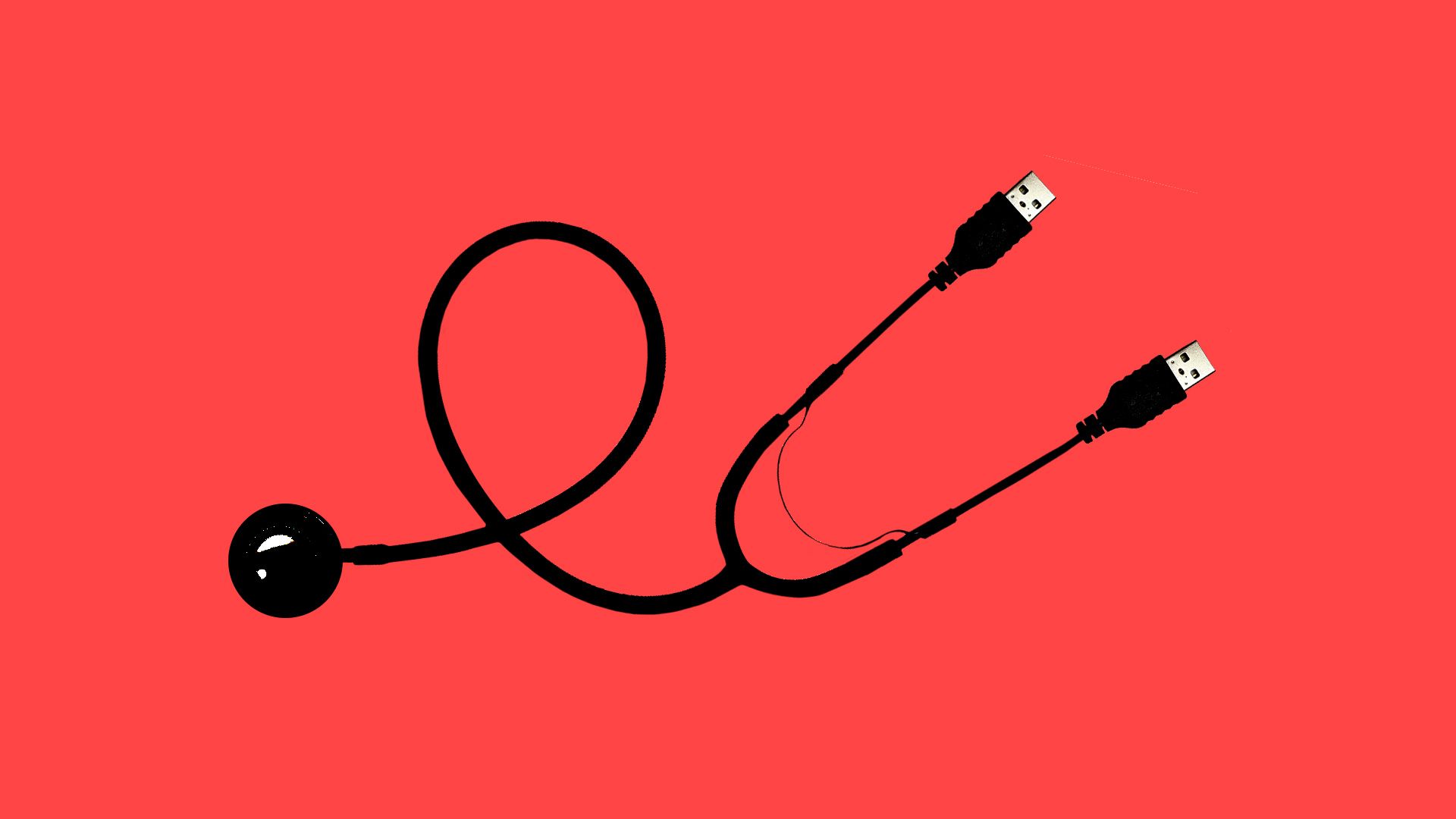Telehealth isn't a silver bullet
Add Axios as your preferred source to
see more of our stories on Google.

Illustration: Rebecca Zisser/Axios
Virtual health care is all the rage right now, especially among investors and tech companies.
Driving the news: Private equity and venture capital firms invested $10 billion into the sector in 2018, suggesting that the financial world certainly expects that the expanding sector will turn a profit.
The big picture: Digital health tools have the potential to improve care.
- But telemedicine also could become "a way for the U.S. profit-driven health care system to make big bucks by outsourcing core duties — while providing a paler version of actual medical treatment," Kaiser Health News' Elisabeth Rosenthal writes.
What they're saying: "It's an area where implications for health care spending are wide open," the American Enterprise Institute's Ben Ippolito.
- If telehealth makes health care more accessible, people may end up using more of it. But if it serves as a substitute for resource-intensive office or hospital visits, it could drive costs down.
- "What mixture of the two we get will likely depend in part on how the broader payment system evolves," Brookings' Matt Fiedler said.
The bottom line: "One should never underestimate the health care system's ability to make money," the Kaiser Family Foundation's Larry Levitt said.
- "While making care more accessible, like through telehealth, might be good for patients, it may not save money, especially if the reimbursement rates aren't set appropriately," he added.
Go deeper: Medical AI has a big data problem
